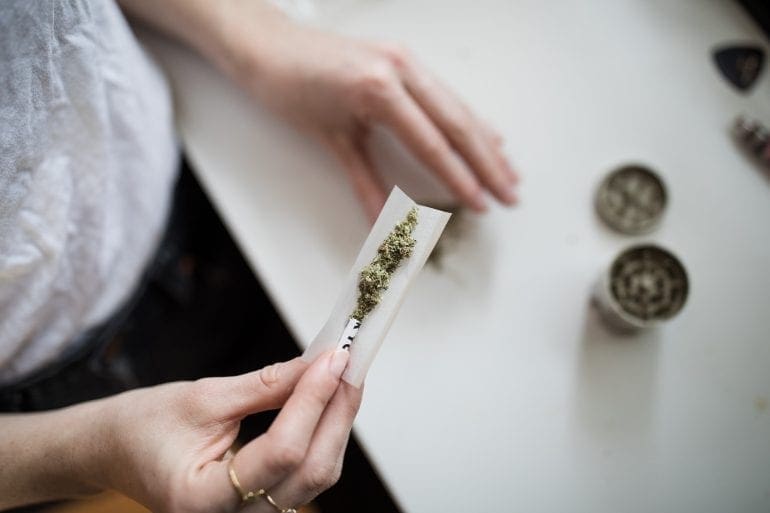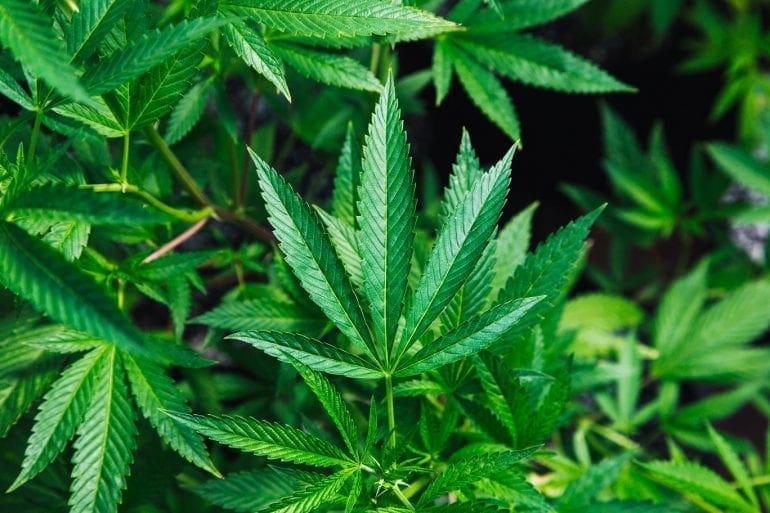Update— On November 3, 2020, New Jersey has voted to legalize marijuana for recreational use. 1 in 3 Americans now live in a state where it’s legal to.
New Jersey is one of the smallest, yet densely populated states in the US. Before medical marijuana legalization in 2010, New Jersey had some of the strictest cannabis laws in the country, with over 31,500 arrests for cannabis offenses in 2017. And ironically, dispensaries all over the country have been deemed essential businesses during the 2020 epidemic.
The efforts of state officials to legalize recreational use of cannabis were unsuccessful over the years, up until now. The tides have shifted, and New Jersey is only a few months away from passing a bill on the legalization of possession and recreational use of cannabis.
Still, let’s take a look at cannabis laws, public opinions, and law reforms that might take place when, and if, weed becomes legal in New Jersey.
The use of medical cannabis in New Jersey
The Compassionate Use Medical Marijuana Act from January 2010 permitted the use of medical cannabis. The Act allowed the patients with various conditions, defined by the Act, to acquire medical-use marijuana, provided that they have a doctor’s prescription.
However, the law prohibited patients from growing their own weed, but had to obtain it from a state-licensed “alternate treatment centers.” The caregivers of the terminally ill were permitted to collect cannabis on behalf of their patients, as long as they’re clearly designated, and have no criminal history.
Unfortunately, the program was met with very little political support, due to considerable costs and incredibly rigid limitations. Still, under New Jersey’s strict medical-marijuana laws, six alternative treatment centers received contracts from the state.
These centers had the exclusive right to grow and sell medical marijuana and medical-grade cannabis products in New Jersey. By June 2018, six centers, and several of their dispensaries were permitted to operate and sell products licensed by the state.
Since then, very little change was made regarding the use of medical marijuana, with several conditions added to the list for treatment.
At the time of this writing, the possession and personal use of recreational marijuana are still illegal in New Jersey. But as the number of states legalizing recreational use increases, the politicians in New Jersey decided not to fall behind.

Recreational use of cannabis
As we mentioned above, the recreational use of weed is still illegal in New Jersey, although there were several legislation attempts.
The first legislation to legalize possession and recreational use of cannabis and cannabis-infused or derived products in 2017 met massive political opposition. Not only did the legislation fail, but the acting governor at the time declared that he would veto any legalization bill.
Thanks to the power shift in 2018, the state legislature re-considered the legalization bill. Unfortunately, the legislation was unsuccessful, and the legalization proposal wasn’t approved.
But things didn’t stop there for the weed of New Jersey. In August 2019, the state Senator Nicholas Scutari introduced another bill, the New Jersey Marijuana Legalization Act, to legalize, regulate, and tax recreational marijuana.
Yet again, the thing didn’t turn out for the stoners of New Jersey, as the bill’s progress was halted by a disagreement of New Jersey’s state leaders. However, state leaders did recognize the benefits of legalizing, taxing, and controlling recreational marijuana use for adults.
On December 16, 2019, the bill to place a recreational marijuana referendum on the 2020 ballot was passed. If the referendum gets the necessary support on the ballot, the possession and personal use of recreational marijuana will become legal in New Jersey.

Public opinion
According to several public opinion polls conducted over the years, the residents of New Jersey showed great support for the legalization of possession and use of recreational cannabis.
In 2015, the Eagleton Institute of Politics conducted a poll regarding the legalization, taxing, and regulated use of medical cannabis. Over 59 percent of respondents supported the idea, and approximately 39 percent opposed it. The Institute conducted a second poll in 2018, which showed almost identical results, with 58 percent supporting, and 37 percent opposing the legalization of recreational marijuana.
In a poll conducted by Monmouth University, 62 percent of New Jerseyans support the idea of legalized recreational use, mostly due to increased tax revenue it would generate.
With such strong support from the voters, the legislation might pass the bill to legalize marijuana on November 3, 2020 ballot. The ballot measure would add an amendment to the state constitution regarding recreational use, as well as the cultivation, processing, and sale of retail marijuana. The amendment would take effect in January of 2021, making New Jersey the first among Mid-Atlantic states to legalize marijuana.

Reforms
Several reports, most notable of which is the one made by New Jersey United for Marijuana Reform, concluded that legalization could be beneficial to the state of New Jersey. Issued in 2016, this report found that legalization could generate approximately $300 million a year in sales tax revenue for the state.
Such an increase in sales tax revenue sounds excellent, economically speaking, and it is. However, legalization would “force” the state to revision and reform its laws regarding both medical and recreational use. For now, according to the Marijuana Legalization Act, recreational cannabis will be treated similarly to alcohol.
That might pose legal issues since cannabis remains illegal on the federal level, despite state laws. That gives employers the ability to discipline, discharge, or deny employment to anyone using recreational marijuana.
According to ADA (Americans with Disabilities Act), people who abuse alcohol are protected from employment termination, as long as they’re qualified to perform the essential functions of the job. In other words, despite showing positive for alcohol on urine tests, the person is protected, as long as they’re sober while working.
Unfortunately, ADA doesn’t show the same favor to recreational marijuana users, or medical ones for that matter. Without adequate state laws, the employees who test positive for cannabis are left at the mercy of their employers, and drug-free workplace policies. In most cases, these individuals suffer employment termination or other legal repercussions.
To learn more about mandatory drug testing in states that legalized recreational use of cannabis, please visit MedSignals.com. They’ll take you through all the necessary steps on how to prepare yourself for an upcoming drug test.
With reformed laws, the state of New Jersey should, at least, regulate pre-employment and employment drug testing laws. The state should strive to protect medical and recreational users as long as they’re responsibly performing the essential functions of their job.
Should an honest and good-working person lose his or her job because of some off-duty herbal entertainment? Even though they have an impeccable work record and have never shown up for work impaired or under the influence of mind-altering substances? We would vote to see those people equally protected by the law and the ADA.

Conclusion
According to various reports, and public opinion polls, the people, businesses and entrepreneurs are I favor of New Jersey legalization. With such strong support, the possession and recreational use of cannabis has a strong chance of becoming legal in January 2021.
We strongly feel that the State of New Jersey, and its residents, would greatly benefit from reformed laws and guidelines regarding recreational use and workplace drug testing.
About the Author/s
The New Jersey Digest is a new jersey magazine that has chronicled daily life in the Garden State for over 10 years.
